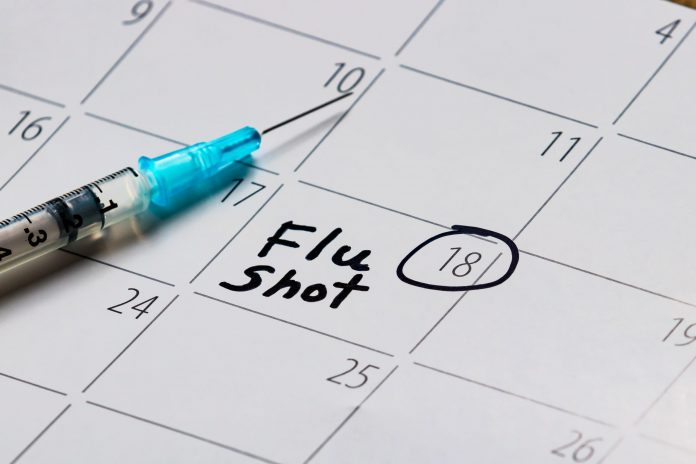CSL Seqirus has confirmed that its 2023 influenza vaccines are now available for supply to private vaccination providers, including pharmacists and GPs. The Australian vaccine company has accelerated supply as flu cases rise in Australia.
CSL Seqirus will be supplying more than 8 million flu vaccines to private vaccination providers and the National Immunisation Program (NIP).
According to the latest data from the Department of Health, there have been over 12,783 confirmed flu cases as of 20 March 2023.1 In 2022, this volume of lab confirmed cases wasn’t seen until early May.2
Natasha Rees, Director, Influenza at CSL Seqirus says the company is providing flu vaccines early to help protect those who wish to be vaccinated.
“Flu is unpredictable so we never know exactly when the season might begin or when cases might peak. Vaccination typically begins in April to allow enough time for people to be vaccinated prior to the season, but we’re pleased to have accelerated supply so that our vaccines are available now to private vaccination providers.
“Our other influenza vaccines are available on the NIP and will become available through GPs and pharmacists when the states roll out the NIP program,” says Natasha Rees.
The latest overseas arrivals data from the Australian Bureau of Statistics shows that international arrivals hit 1.61 million in January, the most since prior to COVID-related travel restrictions were imposed in February 2020.3
Julianne Bayliss, Medical Director of Vaccines and Biosecurity at CSL Seqirus says that seasonal flu can be sparked by travellers visiting, or returning, from the Northern Hemisphere.4
“The volume of cases we’re seeing so far this year is more comparable to the patterns of circulation we saw prior to the COVID-19 pandemic and the recent increases in international travel may be contributing.3, 5 With cases already on the increase in 2023, it’s important that Australians talk to their GP or pharmacist about flu prevention options including vaccination.”
“The flu virus changes every year which is why people are recommended to get vaccinated annually.6 Vaccination is the most important tool to help protect Australians from influenza and its complications.”7
The World Health Organization and Australian Influenza Vaccine Committee make annual recommendations on what strains should be included in the vaccines. All 2023 flu vaccines contain four vaccine strains, including two A and two B strains.7
Julianne Bayliss also says that Australian GPs, scientists, experts and industry are on the front line of the global response to flu.
“During the season, clinics and hospitals across the country send flu samples to the World Health Organisation Collaborating Centre for Reference and Research on Influenza (WHO CCRI) in Melbourne.”
“The WHO CCRI use those samples to make recommendations about what strains should be included in the vaccine. We rely on those recommendations to manufacture vaccines across our network, including at our Parkville site in Melbourne.”
“We’re also continuing to innovate in influenza vaccine technology and are currently building a new state-of-the-art manufacturing facility in Tullamarine, Melbourne. The facility is expected to be operational from 2026.”
About CSL Seqirus
CSL Seqirus is part of CSL Limited. As one of the largest influenza vaccine providers in the world, CSL Seqirus is a major contributor to the prevention of influenza globally and a transcontinental partner in pandemic preparedness. With state-of-the-art production facilities in the U.S., the U.K. and Australia, and leading R&D capabilities, CSL Seqirus utilizes egg, cell and adjuvant technologies to offer a broad portfolio of differentiated influenza vaccines in more than 20 countries around the world.
In Australia, CSL Seqirus operates the only local manufacturing facility for seasonal and pandemic influenza vaccine, and produces a range of unique medicines in the national interest including antivenoms and the world’s only human vaccine for Q fever. The company also in-licenses a broad range of paediatric and adult vaccines and specialty pharmaceutical products.
AU-QIVc-23-0028. Date of Approval: March 2023
References
- Department of Health, NINDSS Dashboard. 2023. Available at: https://nindss.health.gov.au/pbi-dashboard/. Accessed 9 March 2023.
- Department of Health, Australian Influenza Surveillance Report No.3. 2022. Available at: https://www.health.gov.au/sites/default/files/documents/2022/10/aisr-fortnightly-report-no-3-25-april-to-8-may-2022.pdf. Accessed March 2023.
- ABS, Overseas Arrivals and Departures, Australia. 2023. Available at: https://www.abs.gov.au/statistics/industry/tourism-and-transport/overseas-arrivals-and-departures-australia/latest-release. Accessed March 2023.
- Geoghegan JL, et al. 2018. PLOS Pathogens 14(2): e1006903. Available at: https://journals.plos.org/plospathogens/article?id=10.1371/journal.ppat.1006780#sec007. Accessed March 2023.
- ABC News, 2023 set to be ‘huge year’ for international travel with Australia returning to pre-pandemic levels. 2023. Available at: https://www.abc.net.au/news/2023-01-17/australia-top-overseas-travel-destinations-2023-international/101859174. Accessed March 2023.
- Department of Health, Influenza. 2022. Available at: https://health.gov.au/diseases/influenza-flu. Accessed March 2023.
- ATAGI, Statement on the administration of seasonal influenza vaccines in 2023. 2023. Available at: https://www.health.gov.au/sites/default/files/2023-03/atagi-advice-on-seasonal-influenza-vaccines-in-2023.pdf. Accessed March 2023.
Text by: CSL Seqirus







